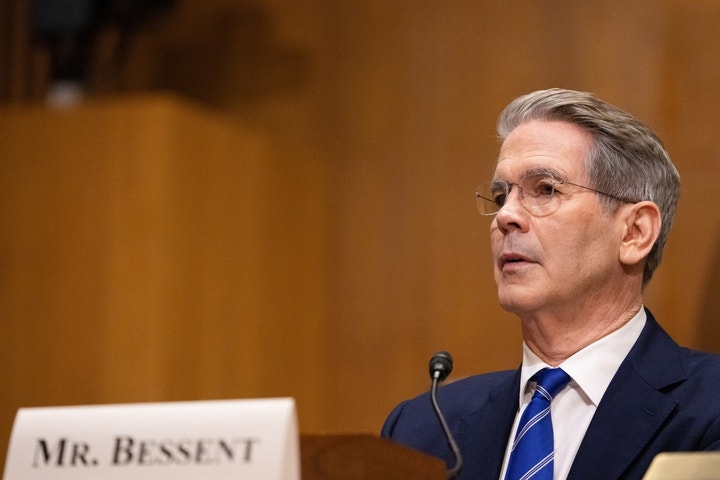
Stanley Druckenmiller's protégé, Treasury Secretary Scott Bessent, is stirring fresh debate on Wall Street with his latest read on tariffs and trade in a CNBC Squawk Box interview. At first glance, a narrowing U.S. trade deficit with China looks like a policy win, but Bessent warns it could have unintended market consequences.
- Track U.S. stocks via SPY here.
If tariffs force China to buy fewer U.S. goods or push supply chains elsewhere, the resulting capital flows could boost the dollar — and that's bad news for dollar-sensitive stocks.
Tariffs, Trade, And The Currency Conundrum
Bessent struck an optimistic tone this week, saying he expects the "reciprocal tariff issue with China to be resolved before November."
On paper, that's constructive for stability, but investors can't ignore the FX angle. A firmer dollar, even as trade balances improve, would squeeze multinationals like Apple Inc (NASDAQ:AAPL) and Nike Inc (NASDAQ:NKE), whose overseas revenues translate back into fewer greenbacks.
Export-heavy sectors, from semiconductors to industrials, could see margin pressure just as earnings momentum recovers.
Read Also: Trump Goes From Intel Critic To Cheerleader In Record Time: Tepper Saw It Coming
Winners, Losers, And The Global Spillover
For emerging-market equities, a surging dollar typically means tighter liquidity and outflows — a scenario EM bulls don't want heading into year-end. Investors in the iShares MSCI Emerging Markets ETF (NYSE:EEM), the iShares Core MSCI Emerging Markets ETF (NYSE:IEMG) or the Vanguard Emerging Markets ETF (NYSE:VWO) should remain wary of their holdings.
Meanwhile, U.S. companies with a domestic tilt, such as those tracked by the Point Bridge America First ETF (BATS:MAGA) could quietly benefit as global competitors stumble.
Bessent's framing is clear: tariffs may be resolved politically, but the financial-market ripple is still in play. Investors riding the soft-landing narrative might need to hedge FX risk before it turns into portfolio drag.
Bessent's tariff talk is a reminder that geopolitics and currencies are joined at the hip. The trade deficit may be narrowing, but if the dollar strengthens too far, too fast, exporters and EM-exposed firms could be collateral damage.
For stock pickers, it's less about tariffs themselves and more about how the FX fallout reshapes winners and losers.
Read Next:
Photo: Shutterstock







